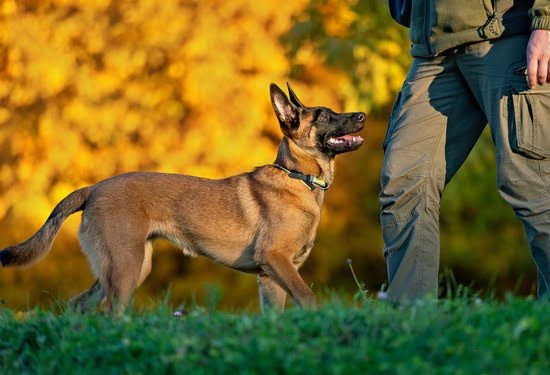Training a non food motivated dog can be a daunting task for any pet owner. While many dogs are naturally motivated by treats and food rewards, there are some furry companions who simply don’t share the same enthusiasm for edible incentives. In this article, we will explore the unique challenges of training a non food motivated dog and provide strategies to overcome these obstacles.
Having a non food motivated dog does not mean that they cannot be trained effectively. However, it does require an understanding of their individual preferences and finding alternative rewards that resonate with them. By delving into the root cause of their lack of interest in food rewards, pet owners can begin to discover what truly drives their four-legged friend.
In this comprehensive guide, we will discuss alternative rewards that may motivate your non food motivated dog, such as praise, playtime, or access to toys. We will also explore positive reinforcement techniques that can be effective in training these dogs and strengthening the bond between owner and pet. By focusing on patience, consistency, and finding the right training methods, you can make strides in successfully training your non food motivated dog.
Identifying the Root Cause
Training a non food-motivated dog can be challenging, but understanding the root cause of their lack of motivation can help in finding effective solutions. There are several reasons why a dog may not be motivated by food, and by identifying these reasons, you can tailor your training approach to suit your dog’s needs.
One possible reason for a dog’s lack of motivation towards food is a medical issue. Certain medical conditions, such as gastrointestinal problems or dental pain, can affect a dog’s appetite and make them less interested in treats during training. If you suspect that your dog’s lack of food motivation is due to a health issue, it is important to consult with a veterinarian to rule out any underlying medical conditions.
Another factor that may contribute to a non food-motivated dog is stress or anxiety. Dogs who are stressed or anxious may have reduced appetites and may not respond as well to food rewards during training. It is important to create a calm and supportive environment for your dog and address any underlying anxiety through techniques such as desensitization and counterconditioning.
Additionally, some dogs simply have different preferences when it comes to rewards. While many dogs are highly motivated by food, others may be more inclined towards other types of rewards such as praise, playtime, or toys. Understanding what drives your non food-motivated dog can help you find alternative rewards that will be more effective during training sessions.
In order to identify the root cause of your dog’s lack of motivation towards food, it is essential to observe their behavior closely and consider factors such as their overall health, stress levels, and individual preferences. By addressing these underlying issues, you can develop an effective training plan that caters specifically to your non food-motivated dog’s needs.
| Reasons for Lack of Food Motivation | Possible Solutions |
|---|---|
| Medical issues such as gastrointestinal problems or dental pain | Consult with a veterinarian to rule out any underlying medical conditions. Ensure your dog’s overall health and appetite are maintained. |
| Stress or anxiety | Create a calm and supportive environment. Use stress-reducing techniques like desensitization and counterconditioning. |
| Different preferences for rewards | Discover what drives your dog – praise, playtime, or toys. Use these alternative rewards during training sessions. |
Alternative Rewards
Understanding the Importance of Alternative Rewards
When training a non food motivated dog, it is crucial to identify alternative rewards that can be used as incentives. While many dogs may be driven by treats or food during training, some dogs simply have different motivations. Understanding the importance of alternative rewards is key to successfully training a non food motivated dog. By discovering what drives your dog and utilizing these rewards effectively, you can create a positive and engaging training experience.
Exploring Different Types of Alternative Rewards
Every dog is different, so it’s important to explore a variety of alternative rewards to find what motivates your non food motivated dog. Some dogs may respond well to praise and verbal cues as a reward for their actions. Others might be more motivated by playtime with their favorite toy or a game of fetch.
It could also be helpful to observe what activities or toys your dog naturally gravitates towards and incorporate those into their training sessions. Whether it’s access to their favorite outdoor area, a chance to chase or sniff something they find intriguing, or even just receiving attention from you, finding the right alternatives is key.
Using Non Food Rewards Effectively
When utilizing non-food rewards in training, it’s important to make them high-value and rewarding for your dog. This means making them engaging and exciting enough that they capture your dog’s attention and keep them motivated throughout the training session. In addition, timing is crucial when using alternative rewards – make sure to provide the reward immediately after your dog performs the desired behavior so they can associate their action with the reward.
It’s important to note that while finding alternative rewards is essential for training a non food motivated dog, it does not mean completely excluding food from their training regimen. Food can still play a role in certain situations or as occasional rewards when appropriate. The key is finding the right balance between various types of rewards to keep your dog engaged and motivated to learn.
Positive Reinforcement Techniques
Positive reinforcement is a crucial aspect of training any dog, but it becomes even more important when dealing with a non-food motivated dog. While food may not be the primary motivator for your dog, there are still numerous non-food rewards that can be utilized effectively to reinforce desired behaviors.
One effective technique is verbal praise and affection. Dogs thrive on a positive and encouraging tone of voice, so using phrases like “good job” or “well done” in an enthusiastic manner can go a long way in motivating your dog. Additionally, physical touch such as gentle petting or belly rubs can serve as a powerful reward for many dogs.
Another non-food reward to consider is playtime. Many dogs enjoy engaging in interactive play sessions with their owners. This could involve playing fetch, participating in agility exercises, or simply running around the backyard together. By incorporating play into training sessions, you can tap into your dog’s natural instincts and provide them with mental and physical stimulation that doubles as a reward.
In addition to verbal praise and playtime, non-food rewards can also include access to their favorite toys or activities. For instance, if your dog loves going for walks or car rides, you can use these privileges as incentives during training sessions. By linking these enjoyable experiences with specific desired behaviors, you create stronger motivation for your dog to comply.
To effectively utilize non-food rewards in training sessions, it’s important to establish clear communication and timing. The reward should come immediately after the desired behavior has been performed correctly. This helps your dog understand which actions are earning them the reward. Consistency is key in reinforcing the connection between the behavior and the reward.
By utilizing positive reinforcement techniques such as verbal praise, affectionate touch, playtime, and access to preferred activities or toys, you can effectively train a non-food motivated dog. These rewards help strengthen the bond between you and your dog while also promoting desirable behaviors. Remember to be patient and consistent in your training efforts, as it may take some time for your non-food motivated dog to understand and respond to these alternative rewards.
Building a Strong Bond
Building a strong bond with your dog is essential when training a non food-motivated dog. By establishing a strong relationship based on trust and respect, you can create a positive and welcoming environment for your dog to thrive in. This section will provide tips and strategies for building a strong bond with your non food-motivated dog, ultimately enhancing the effectiveness of your training efforts.
Spending Quality Time Together
One of the key ways to strengthen the bond with your non food-motivated dog is by spending quality time together. Engaging in activities that both you and your dog enjoy can help foster a sense of connection and understanding. Whether it’s going for long walks, playing fetch at the park, or simply cuddling on the couch, these shared experiences will help create a foundation of trust and companionship.
Positive Reinforcement and Affection
Using positive reinforcement techniques that go beyond just treats can also be an effective way to build a strong bond with your non food-motivated dog. Give plenty of praise, attention, and affection when they exhibit desired behaviors or successfully complete a training task. By showering them with love and appreciation, you are reinforcing their good behavior and showing them that they are valued members of the family.
Establishing Clear Communication
Clear communication is vital in any relationship, including the one you have with your non food-motivated dog. Take the time to understand their body language and learn how to communicate effectively with them. Use consistent cues or commands when training, so they can easily understand what is expected of them. It’s also important to be patient and attentive while training, as this shows them that you are invested in their progress.
By building a strong bond with your non-food motivated dog through spending quality time together, using positive reinforcement techniques beyond treats, and establishing clear communication, you are setting yourself and your furry friend up for successful training sessions. Remember, building a strong bond takes time and patience, so be sure to celebrate even the smallest achievements along the way.
With a strong foundation of trust and connection, you’ll find that your non food-motivated dog becomes more receptive to training and eager to please.
Incorporating Play and Toys
Understanding the Importance of Play and Toys
Incorporating play and toys into the training process can be an effective way to motivate a non food motivated dog. For some dogs, play and toys can be just as rewarding as food, if not more so. By understanding the importance of play and toys in a dog’s life, you can tap into their natural instincts and use it to your advantage during training.
Play is an essential part of a dog’s mental and physical well-being. It provides them with an outlet for their energy, helps them relieve stress, and strengthens the bond between dog and owner. Additionally, engaging in interactive play with your dog triggers their natural prey drive, making it an incredibly powerful motivator. By incorporating play into their training sessions, you are not only providing them with mental stimulation but also creating a positive association with the desired behaviors.
Selecting the Right Toys
When utilizing play as a reward during training, it is crucial to choose the right toys that will capture your dog’s interest and keep them engaged. Every dog has different preferences when it comes to toys, so it may require some trial and error to find what works best for your non-food motivated companion.
Look for toys that are interactive or have puzzle elements that require problem-solving skills. These types of toys will engage your dog’s mind while still providing physical exercise. For example, treat-dispensing toys can be filled with low-value treats or kibble to create motivation during training sessions. Rubber chew toys such as Kong or durable tug ropes can also work well for many dogs.
Incorporating Play into Training Sessions
To effectively incorporate play into training sessions, start by establishing clear rules for playtime. Teach your dog cues that indicate when it is time for play versus when they need to focus on training behaviors. This will help your non-food motivated dog understand that play is a reward for desired behaviors and not an automatic response.
During training, use play as a reward for successfully performing a command or behavior. For example, after your dog successfully sits on command, engage in a short game of tug-of-war or throw their favorite toy for them to fetch. The key is to make the play session fun and rewarding while reinforcing the desired behavior.
By utilizing play and toys as rewards during training sessions, you can effectively motivate and engage your non food motivated dog. Remember to choose the right toys that capture their interest and incorporate play into training sessions in a purposeful and controlled manner. With patience, consistency, and creativity, you can strengthen the bond with your dog while achieving successful training outcomes.
Finding the Right Training Methods
Training a non-food motivated dog can be a challenge, but with the right techniques and patience, it is definitely possible to achieve success. In this section, we will explore different training methods that can be effective for dogs who are not motivated by food rewards.
One approach that can work well with non-food motivated dogs is using praise and petting as rewards. Many dogs are highly motivated by positive attention from their owners, so utilizing this as a reward can be very effective. When your dog performs a desired behavior, immediately provide verbal praise and physical affection such as petting or belly rubs. This positive reinforcement can help encourage your dog to repeat the behavior in the future.
Another method that can be successful is clicker training. Clicker training involves using a small handheld device that makes a distinctive clicking sound when pressed. The click serves as a precise marker to let your dog know when they have performed the correct behavior.
After the click, you can provide another form of reward such as verbal praise or playtime with a favorite toy. With consistent use of the clicker and positive reinforcement, your dog will learn to associate the sound with good behavior and become more motivated to perform it.
Some non-food motivated dogs may respond well to play as a reward. This could involve incorporating interactive toys or games into training sessions. For example, if your dog successfully follows a command or completes a task, reward them by engaging in a game of fetch or tug-of-war with their favorite toy. This combination of mental stimulation and physical activity can be highly rewarding for dogs who are not motivated by food.
| Training Method | Description |
|---|---|
| Praise and Petting | This method utilizes verbal praise and physical affection as rewards for desired behavior. |
| Clicker Training | Clicker training involves using a handheld device that makes a distinctive sound to mark correct behaviors, followed by another form of positive reinforcement. |
| Play as a Reward | This method incorporates interactive toys or games into training sessions, providing physical and mental stimulation as a reward for your dog. |
By exploring these different training techniques and finding what motivates your non-food motivated dog, you can make the training process more enjoyable and effective. Remember to be patient, consistent, and always adapt your methods to suit your individual dog’s needs and preferences. With time and effort, you will build a strong bond with your dog while achieving their training goals.
Patience and Consistency
Training a non food motivated dog can be challenging, but with patience and consistency, you can still achieve successful training outcomes. These two key factors are essential in helping your dog understand what is expected of them and reinforcing positive behaviors. Here are some strategies to help you navigate the training process with your non-food motivated dog:
- Establish a Routine: Non-food motivated dogs thrive on routine and structure. Create a consistent training schedule that includes short, frequent sessions throughout the day. This will help your dog stay focused and engaged during training.
- Use Verbal Praise and Affection: Since food treats may not motivate your dog, focus on using verbal praise and affection as rewards instead. Dogs thrive on attention from their owners, so use enthusiastic praise, petting, or even a favorite toy as positive reinforcement when they exhibit desired behaviors.
- Find the Right Rewards: While treats may not work for your non-food motivated dog, it’s important to find other types of rewards that do capture their interest. Experiment with different options such as playtime with their favorite toy, access to a special area or activity they enjoy (like going for a walk), or even social interaction with other dogs.
To implement these strategies effectively, remember to be patient and consistent in your training approach:
- Be Patient: It may take longer for a non-food motivated dog to understand what you want from them compared to food-motivated dogs. Avoid becoming frustrated or discouraged if progress seems slow. Stay calm and patient throughout the process, making adjustments as needed.
- Reinforce Consistency: Consistency is crucial in training any dog but is especially important for non-food motivated ones. Ensure that everyone in the household uses the same commands and follows the same rules when interacting with the dog. This consistency will reinforce expectations and make it easier for your dog to understand what is required of them.
- Break Tasks into Smaller Steps: If your dog is struggling with a specific command or behavior, break it down into smaller, more manageable steps. Once your dog understands and successfully completes one step, gradually build on that success by introducing the next step. This approach will build confidence and make the training process less overwhelming for your non-food motivated dog.
Remember that every dog is unique, and what works for one may not work for another. Therefore, it’s important to tailor your training methods to suit your specific dog’s needs and preferences. With patience and consistency as your guiding principles, you can overcome the challenges of training a non-food motivated dog and forge a strong bond built on trust and understanding.
Troubleshooting
Training a non-food motivated dog can be challenging, but with patience and the right techniques, it is possible to overcome these obstacles. Here are some troubleshooting tips to help you overcome training challenges for non food-motivated dogs:
- Identify the underlying issue: Before troubleshooting, it’s important to understand why your dog is not motivated by food. It could be due to health issues, stress or anxiety, lack of interest in the particular food used for training, or a past negative experience. Identifying the root cause will help you develop appropriate solutions.
- Experiment with alternative rewards: Since food may not be motivating for your dog, it’s essential to find other rewards that they respond positively to. This can include verbal praise, physical affection such as petting or belly rubs, favorite toys or games, or even access to certain environments like going outside for a walk. Creating a list of alternative rewards and experimenting with them during training sessions will help you determine what drives your dog.
- Modify training techniques: Traditional training methods that heavily rely on food rewards may need to be adjusted for non-food motivated dogs. Positive reinforcement techniques that focus on rewarding desired behaviors can still be effective using alternative rewards. For example, instead of offering treats when your dog sits on command, you can provide verbal praise or play their favorite game as a reward.
- Experiment with different types of rewards.
- Modify traditional training methods.
- Use positive reinforcement techniques.
By troubleshooting and incorporating these strategies into your training approach, you can effectively overcome challenges associated with having a non-food motivated dog. Remember that consistency and patience are key during this process. Each dog is unique in what motivates them, so finding what works best for your furry friend may take time and experimentation.
Remember to always keep the training sessions short and enjoyable for your dog so that they remain engaged and eager to learn. Celebrate small successes along the way by recognizing achievements and milestones in your dog’s progress. With perseverance and a strong bond, you can make training a rewarding experience for both you and your non-food motivated dog.
Celebrating Success
Training a non food motivated dog can be a challenging and sometimes frustrating process, but it is important to celebrate the small victories along the way. Recognizing achievements and milestones in your dog’s training journey not only boosts their confidence, but also strengthens the bond between you and your furry friend.
One way to celebrate success is by verbal praise. Dogs thrive on positive reinforcement, so when your non food motivated dog successfully follows a command or learns a new trick, make sure to shower them with praise and encouragement. Using an upbeat tone of voice and saying phrases like “Good boy/girl.” or “Well done.” lets them know that they have done something right.
Another way to celebrate success is through physical affection. Dogs love being cuddled and petted, so give them plenty of gentle strokes or belly rubs when they accomplish something during training. This physical touch not only rewards their good behavior, but also reinforces the positive association with training sessions.
Additionally, incorporating playtime into your dog’s training routine can be a fun way to celebrate achievements. After successfully completing a task, engage in interactive play with your non food motivated dog using their favorite toy. Tug-of-war or fetch are great games that provide mental stimulation and physical exercise while also serving as rewards for their hard work.
Overall, celebrating success in training a non food motivated dog is crucial for their motivation and progress. By using verbal praise, physical affection, and playtime as rewards, you can reinforce positive behaviors and create a strong bond with your four-legged companion.
| Celebration Method | Description |
|---|---|
| Verbal Praise | Using an upbeat tone of voice and positive phrases like “Good boy/girl.” or “Well done.” |
| Physical Affection | Giving gentle strokes, belly rubs, and cuddles to reward good behavior. |
| Interactive Play | Engaging in games like tug-of-war or fetch using your dog’s favorite toy. |
Conclusion
Training a non-food motivated dog can be challenging, but with patience, persistence, and the right techniques, it is possible to overcome this obstacle and build a strong bond with your furry friend. Throughout this article, we explored various strategies to train a dog who is not motivated by food rewards.
From identifying the root cause of their lack of interest in food to discovering alternative rewards and incorporating interactive play, we have covered a range of approaches that can help you successfully train your non-food motivated dog.
While training a non-food motivated dog may require more creativity and effort compared to dogs who are highly food motivated, the journey itself can be incredibly rewarding. The process allows you to deepen your understanding of your canine companion and find unique ways to connect and communicate with them. By exploring different training methods and finding what truly motivates your dog, you not only strengthen their obedience but also enhance the relationship between you and your furry friend.
Throughout this journey, it is important to remember the keys to successful training: patience and consistency. Training a non-food motivated dog requires time and dedication. It is crucial not to get discouraged if progress seems slow at times. Stay consistent in your training routine, use positive reinforcement techniques effectively, incorporate play and toys where appropriate, and celebrate each achievement along the way.
Lastly, troubleshooting will inevitably arise during the training process. Every dog is unique in their behaviors and responses to training, so it’s essential to remain adaptable. If certain techniques prove ineffective or you encounter new challenges along the way, don’t hesitate to seek guidance from professional trainers or behaviorists who specialize in working with non-food motivated dogs.
In conclusion, training a non-food motivated dog may present its challenges but embracing this journey can lead to remarkable rewards. By understanding why your dog may not be interested in food rewards and identifying alternative incentives that drive them, you can foster a stronger bond and create a well-behaved companion for life. So embrace the journey, be patient, and celebrate each milestone along the way as you navigate the unique world of training a non-food motivated dog.
Frequently Asked Questions
How do I train a dog that is not food motivated?
Training a dog that is not food motivated can present some challenges, but it is definitely possible to work with such dogs using alternative motivators. One effective approach is to identify what does motivate the dog and use that as a reward during training sessions. For example, if your dog enjoys playing with toys, you can use a favorite toy as a reward for desired behaviors.
Another option is to use praise and verbal encouragement as rewards, along with physical affection through petting or belly rubs. Additionally, you can incorporate activities and games into training sessions to make them more engaging for your dog. Remember to be patient and consistent in your training efforts, adapting your methods to suit your dog’s individual preferences.
Can you train a dog without food?
Yes, it is absolutely possible to train a dog without relying solely on food rewards. While food can be an effective motivator for many dogs, there are alternative methods that can be just as successful for training purposes. As mentioned earlier, some dogs may respond well to other types of rewards such as playtime with their favorite toys or receiving verbal praise and affection.
In fact, withheld attention or temporary isolation could also serve as negative consequences when correcting undesirable behaviors. Different dogs have different motivators, so it’s essential to understand what works best for your specific dog and utilize those incentives during training sessions instead of relying solely on treats or food rewards. With consistency, patience, and finding the right motivators for your furry friend, training without food can still yield positive results.

Welcome to the blog! I am a professional dog trainer and have been working with dogs for many years. In this blog, I will be discussing various topics related to dog training, including tips, tricks, and advice. I hope you find this information helpful and informative. Thanks for reading!





